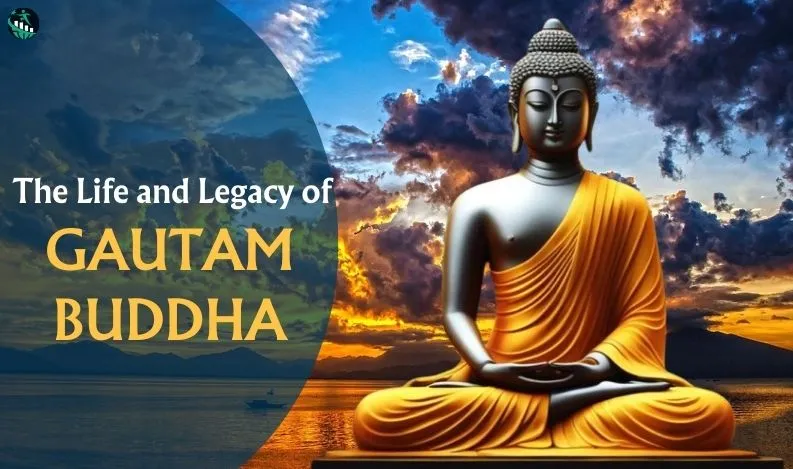
The Life and Legacy of Siddhartha Gautama: Understanding the Buddha
In the annals of spiritual history, few figures are as revered and influential as Siddhartha Gautama, known to the world as the Buddha. His teachings, which laid the foundation for Buddhism, have traversed continents and epochs, embedding themselves in the fabric of diverse cultures. This exploration delves deep into the life of the Buddha, his quest for enlightenment, the essence of his teachings, and the indelible mark they have left on humanity.
From Prince to Spiritual Pioneer: The Life of Siddhartha Gautama
Siddhartha's story begins in the lush gardens of Lumbini, where he was born into the royal Shakya clan. His early years were marked by luxury and isolation from the harsh realities of life. However, an encounter with the inevitable suffering that afflicts all beings—old age, sickness, and death—spurred a profound existential crisis in him. At the age of 29, he made a radical decision to renounce his princely life, seeking answers to the deep mysteries of life and suffering.
This decision led Siddhartha on a rigorous spiritual quest, during which he studied under various sages and engaged in severe ascetic practices. Yet, these paths did not yield the profound insight he yearned for. It was under the Bodhi tree, after adopting a balanced approach between self-indulgence and self-mortification, that Siddhartha attained supreme enlightenment, becoming the Buddha, "the awakened one."
The Core of Buddha's Teachings: Understanding Dukkha and the Path to Liberation
At the heart of the Buddha's enlightenment was the realization of the Four Noble Truths, a profound understanding of the nature of dukkha (often translated as suffering, but more accurately as dissatisfaction or unease), its origin, its cessation, and the path leading to its cessation. This path is the Noble Eightfold Path, encompassing right understanding, right intent, right speech, right action, right livelihood, right effort, right mindfulness, and right concentration.
Central to the Buddha's insight is the concept of Anatta, or "not-self," challenging the prevailing notions of a permanent, unchanging self or soul. This radical idea, coupled with the teachings on Anicca (impermanence) and Dependent Origination, provides a comprehensive framework for understanding the interconnectedness of all phenomena and the ephemeral nature of existence.
Meditation and Mindfulness: The Practice of Dhyana
Integral to the Buddha's teaching is the practice of meditation (dhyana), a methodical cultivation of awareness and insight. The Buddha outlined various meditative techniques, including mindfulness of breathing (Anapanasati), contemplation of the body (Kayagatasati), loving-kindness (Metta), and the absorptive states known as the Jhanas. These practices are designed to sharpen the mind, cultivate serenity and compassion, and ultimately lead to the direct realization of the truths he discovered.
The Sangha: Building a Spiritual Community
Recognizing the importance of communal support in the spiritual journey, the Buddha established the Sangha, a community of monks, nuns, and lay practitioners committed to practicing the Dharma. This revolutionary idea not only democratized access to spiritual teachings but also created a space for collective growth, learning, and enlightenment.
The Global Spread and Cultural Impact of Buddhism
From its humble beginnings in the Indian subcontinent, Buddhism spread across Asia, morphing into a myriad of traditions and schools. In Theravada Buddhism, found in Sri Lanka and Southeast Asia, the focus is on the historical Buddha and the Pali Canon. Mahayana Buddhism, which spread to China, Korea, Japan, and Vietnam, introduced the concept of the Bodhisattva, beings who seek enlightenment for the sake of all. Vajrayana Buddhism, prevalent in Tibet and Mongolia, incorporates esoteric practices and rituals.
Beyond its religious manifestations, the Buddha's teachings have influenced philosophy, art, and culture. The ideals of compassion, non-violence, and mindfulness have found resonance in various cultural practices, artistic expressions, and contemporary movements for peace and social justice.
Siddhartha Gautama in Other Religious Traditions
The Buddha's legacy transcends Buddhism, influencing and being incorporated into several other religious traditions. In Hinduism, he is regarded as an avatar of Vishnu. The Baha'i faith recognizes him as one of the Manifestations of God. Intriguingly, elements of his life story and teachings have parallels in Christianity, Islam, and other religions, reflecting the universal appeal of his message of compassion, wisdom, and liberation.
Conclusion: The Timeless Wisdom of the Buddha
The life and teachings of Siddhartha Gautama continue to inspire and guide millions of people around the world. His profound insights into the nature of reality, the causes of suffering, and the path to liberation offer a timeless wisdom that transcends religious and cultural boundaries. As we navigate the complexities of modern life, the Buddha's teachings on mindfulness, compassion, and interdependence offer a beacon of hope and a path to true peace and happiness.








Recent Comments: